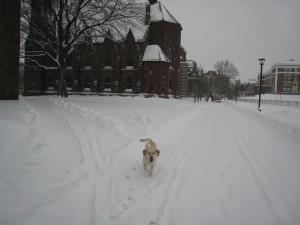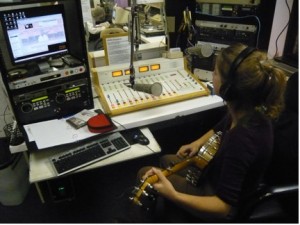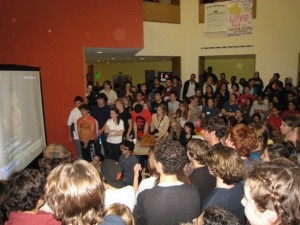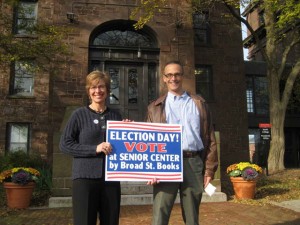As we close out 2008 I find myself still dealing with ongoing projects from the fall while putting things in place for the beginning of next semester. Almost finished with my grading of my class on photography and representation, I am spending more time finalizing my syllabus for my spring course on movies and philosophy, The Past on Film. Although I have taught this class many times over the years (and as recently as last spring), I can’t help but rethink the readings and movies one more time.
As a historian interested in how people make sense of the past, I began teaching and writing about film and photography more than 15 years ago. In December I wrote a review for the LA Times on Annie Liebovitz’s most recent book:
http://www.latimes.com/features/books/la-ca-annie-leibovitz21-2008dec21,0,6719282.story
Working with the photography collection in our Davison Art Center was a great treat this past semester, and I am looking forward to teaching again in our state of the art film facility. But first I have to finish this syllabus!
Once faculty and students return to campus we will resume work on our budget planning and curricular initiatives. There will be more difficult trade-offs, as we chart a course to keep Wesleyan on track during this economic crisis and beyond. I will continue to share information about the planning process on this blog and the Securing the Future website.
Maintaining access to a Wesleyan education through a robust financial aid program is an important value that guides our planning. Recently the political scientist Charles Murray has argued that we are encouraging too many people to pursue a college education. Yesterday I published on the Huffington Post a response to a recent op-ed piece by Dr. Murray:
http://www.huffingtonpost.com/michael-roth/no-time-to-back-away-from_b_154023.html
It is still very quiet here at Wesleyan, but now varsity athletes have returned for practices before next week’s tournaments. Before too long the campus will be fully back to life. Meanwhile, I send out best wishes to the extended Wesleyan family for a great 2009.
[tags] classes, The Past on Film, photography, Los Angeles Times, Annie Liebovitz, Davison Art Center, economy, Securing the Future, financial aid, Charles Murray, Huffington Post [/tags]










